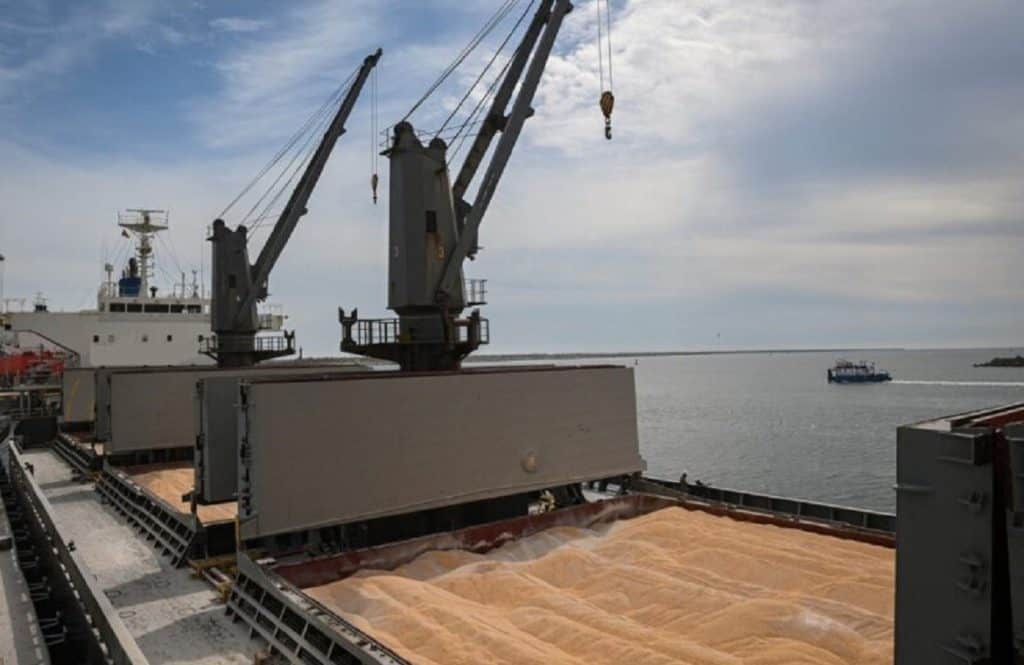By Prof. Engr. Zamir Ahmed Awan
The impact of the Ukraine war on Europe is very much visible. The inflation and price hike of daily used items have jumped and affected almost every individual. Furthermore, more than 6 million Ukrainian refugees have settled in Europe.

As a matter of fact, Russia has kept control of almost all seaports of Ukraine and transformed it into a land-locked country. Ukraine was providing two-thirds of global wheat and a huge quantity of fertilizers. But, as the Russian is controlling seaports, and the country is over-engaged in war, the production of food and fertilizer is scared and supply is interrupted already.
Due to American imposed sanctions, the supply of Russian gas and fuel to Europe is also facing challenges. The EU follows American policies, without looking after their interests., even if many scholars, intellectuals and thinkers are now urging for a sustainable solution of the Russian-Ukrainian conflict. .
The US is far away from Ukraine and is not dependent on Ukrainian wheat, fertilizers, or Russian gas or oil. But, the case of Europe is quite different. Some of the European nations are economically strong to absorb such shocks, but most of them are close to recession.
The Russian president told Draghi that disruptions to food supplies were exacerbated by the sanctions imposed by the U.S. and its allies and that Moscow is “willing to make a significant contribution to overcoming the food crisis through the exports of grain and fertilizers on the condition that the West’s politically-motivated restrictions are lifted.”
Russian Deputy Foreign Minister Andrey Rudenko said this week the government in Kyiv is to blame for the halt to grain exports from Ukraine because it mined its ports. Ukraine denies that, says it is Moscow that is preventing ships from docking, and accuses it of stealing grain stores from occupied regions.
A White House spokesperson said Russia’s actions were increasing world hunger. Before the war broke out, Ukraine was a key supplier of wheat, corn, and sunflower oil to other countries, particularly poorer nations including North Africa. Grain is now sitting in silos in Ukraine and unable to be shipped. “Sanctions from the United States and our allies and partners target Putin’s war machine,” the spokesperson said. “They do not prevent the export of Ukrainian or Russian agricultural commodities, including food and fertilizer, nor are they preventing the ordinary transactions that are necessary for these exports, such as banking or shipping.”
However, Ukraine wants guarantees that safe passage wouldn’t allow Russian forces to enter the harbor in Odessa and attack the city, Foreign Minister Dmytro Kuleba said at a press conference in Davos.
It seems that Russia is in a bargaining position in overcoming food shortages, but, in return, it expects the removal of sanctions. However sanctions could be counterproductive and harm EU more than Russia. In history, sanctions almost never produced desired results meanwhile often they have created more side effects than cures.
Only dialogue is the way out and a peaceful negotiation may end the Ukraine war. Russia has signed the Minsk Agreement and it may desire to maintain its relations with Europe under this agreement. The senior diplomat, politician, and international expert on geopolitics, Henry Kissinger, has proposed a realistic solution that is worth studying. Hope, peace may prevail and human made disaster may end soon. It requires serious efforts and independent thinking, the sooner the better. Delay in dialogue may complicate the situation further and may enter into crisis stage.
Author: Prof. Engr. Zamir Ahmed Awan – Sinologist (ex-Diplomat), Editor, Analyst, Non-Resident Fellow of CCG (Center for China and Globalization). Islamabad, Pakistan.
(The views and opinions expressed in this article are only of the authors and do not necessarily reflect the views, opinion or position of World Geostrategic Insights).







